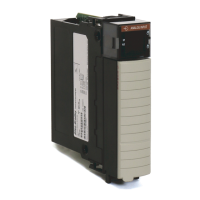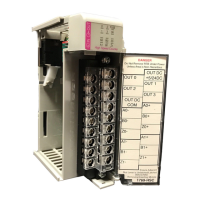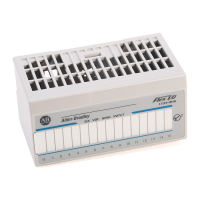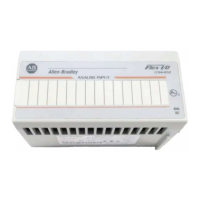Rockwell Automation Publication 1756-RM011A-EN-P - June 2016 23
Application Conversion Chapter 4
CST Time Stamp Data and
Rolling Time Stamp
Depending on which 6-channel module is used and its configuration, the
various 6-channel modules returned various combinations of a Rolling time
stamp and/or a Coordinated System time stamp (CST).
When used in 8-channel mode all 8-channel modules return a Rolling time
stamp and a CIP Sync time stamp. A CIP Sync time stamp is essentially the
same as UTC time (Coordinated Universal Time). See KB ID 40008 for more
information on differences between CST and CIP Sync.
When used in Emulation mode, all 8-channel modules return a CST time
stamp if the user configuration calls for a CST time stamp. Therefore CST
time stamp behavior is the same in 6-channel and 8-channel modules when
used in Emulation mode.
CIP Generic Messages
In the unlikely event that you have any CIP generic messages to the 6-channel
module, those messages do not always complete. Due to the large number of
possibilities for using a CIP generic message, it cannot be determined what
messages do and do not work. For instance, a “Device Who”, “Module
Reconfigure,” or an “Unlatch Analog High Alarm” work, but it is not
guaranteed that all messages work as intended.
If an 8-channel module in Emulation mode has a valid connection to it, the
module gives you a “Mode or State of module doesn’t allow object to perform
requested service” error because it didn’t accept a “Device Reset” CIP generic
message. Under the same conditions, a 6-channel module would accept a
Device Reset command.

